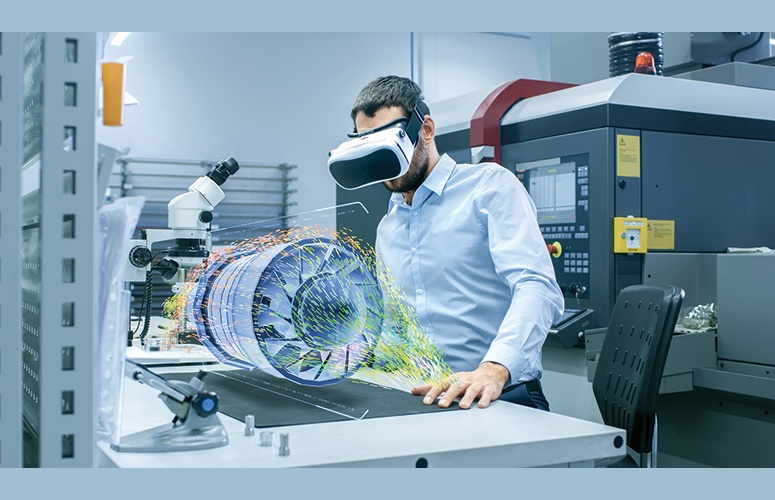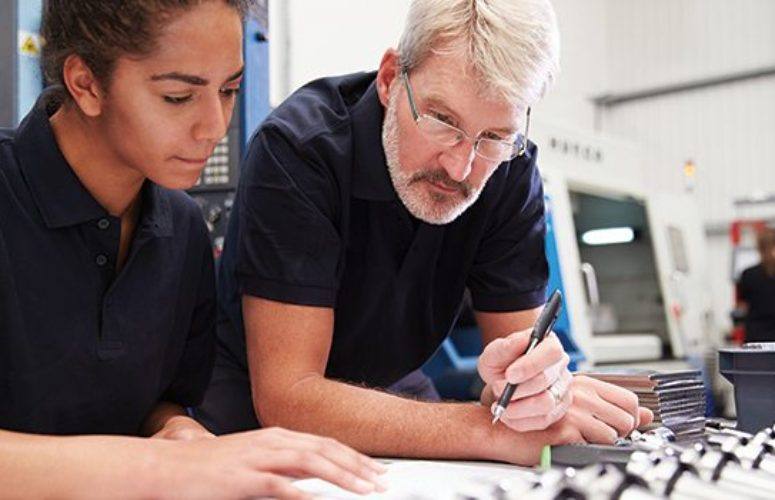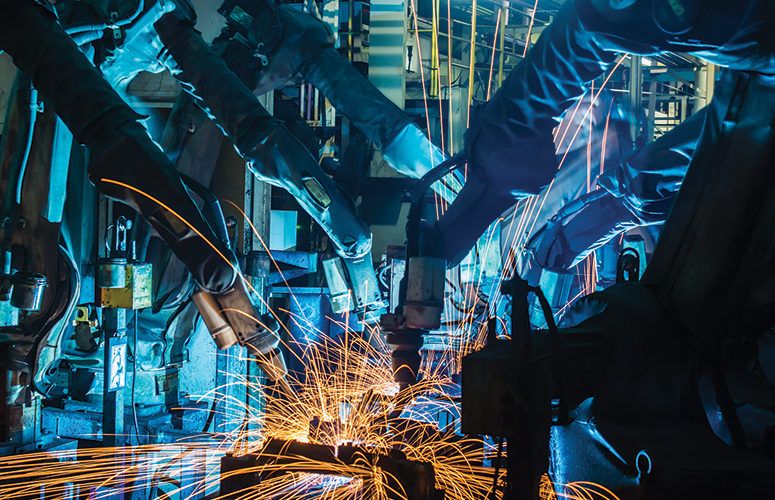
Public Question on the Ballot: Vote “Yes” for a 21st Century Workforce
By Robert Staudinger On Oct 4, 2018Anybody with a manufacturing business in New Jersey should be worried about where the next generation of highly-trained technicians will come from. I am. On Election Day, we can take a bold step forward in addressing this major workforce development issue.
The Securing Our Children’s Future Bond Act will provide $350 million to enhance security at New Jersey schools and help county vocational-technical schools build the state-of-the-art labs, shops and classrooms needed to prepare young people for highly-technical, well-paying careers in fields like manufacturing, logistics, construction, medical technology, and cybersecurity.
This critical initiative will help create programs like the Engineering, Design and Advanced Manufacturing (EDAM) program, a partnership launched by the Morris County Vocational Schools District, County College of Morris (CCM), the New Jersey Business & Industry Association (NJBIA), the NJ Manufacturing Extension Program, and local manufacturers, including my company, National Manufacturing Co., Inc.
EDAM started with 20 students in 2015. Now, there’s a wait-list. Students get excited about careers in manufacturing as they experience design and prototyping – they even partner with NASA to fabricate equipment that has been used in astronaut training and on the International Space Station.
New Jersey needs to invest in new opportunities like this in order for students to develop technical, hands-on skills and gain real-world work experience during high school.
Part of my role with EDAM is speaking with the parents of prospective students and the students themselves.
Most parents – believing that a bachelor’s degree right out of high school is the only road to success – have never considered this kind of technical career option for their children.
The parents and students are surprised to learn that:
- Many well-paying careers don’t require a four-year college degree. Skilled technologists, such as tool-and-die makers, machinists and mechanics, can earn $80,000 a year or more.
- Students can earn industry certifications and college credits while still in high school.
- Businesses will compete to hire graduates, and many, if not most, help pay for their employees to earn college credits and degrees, creating a pathway to career advancement without the burden of college debt.
Programs like this are in high demand. Enrollment at county vocational-technical high schools has increased by 34 percent since 2000. Why? Parents and students recognize that today’s vocational schools are about preparing for a well-paying career pathway, not a single job. It’s no longer a choice between college or career – career and technical education lets students get a head start on both.
On average, county vocational schools receive 2.3 applications for every available seat. In 2017, almost 17,000 applicants could not be accommodated.
If we expect to prepare young people for the workforce of today and tomorrow, we need more technical schools, shops and labs. But they are expensive.
The question on the November ballot will ask voters to approve state bonds to help pay for these new facilities. It’s a crucial investment for employers who need a strong pipeline of future workers with technical skills.
Some may wonder if it makes sense to increase state debt to pay for this … I say, most emphatically, “Yes!”
This bond act is a major workforce development issue with a strong return on investment. It will provide well-prepared workers to fill an estimated 40,000 critically-needed positions, allowing companies to expand and more young people to stay in New Jersey working at family-sustaining jobs, and increasing corporate revenues and state tax revenues.
This November, we need to make sure that voters understand the importance of investing in New Jersey’s economic future, too.
About the Author: Robert J. Staudinger is the president and CEO of National Manufacturing Co., Inc., a member of the NJBIA Board of Trustees, and Co-Chair of NJBIA’s Manufacturing Network.
Related Articles:






